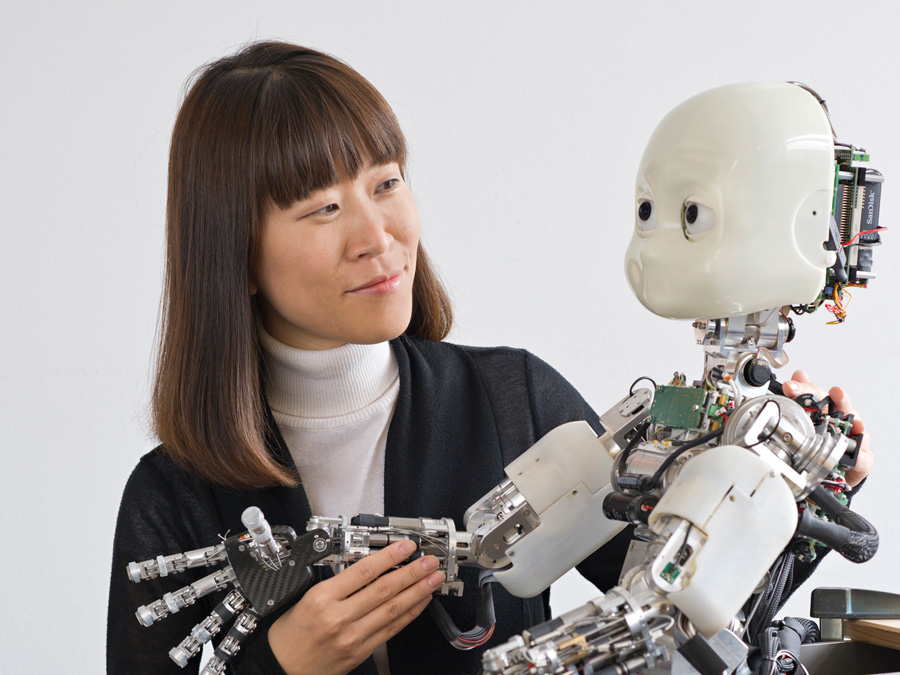Helmholtz professorship for Dongheui Lee
Outstanding support for TUM scientist

A native of Korea, Dongheui Lee focuses on machine learning for robotics. She investigates how robots can learn independently from observing sequences of movements and everyday activities – for example, by copying the motions of humans. The concepts developed by Dongheui Lee make it possible for robots to operate independently in a world composed of dynamic data, without needing to be pre-programmed in every detail. Potential application areas include industrial fabrication, within the framework of Industry 4.0, and space missions in which both ships and stations could be "manned" by robots.
Dongheui Lee studied in Korea and Japan and has worked as a research scientist at the Korea Institute of Science and Technology and an Associate Professor at the University of Tokyo. In addition to her professorship in the TUM Dept. of Electrical and Computer Engineering, she has been a Fellow of the TUM Institute for Advanced Study. Lee has published extensively and is currently on the editorial boards of four technical journals.
With this professorship program, the Helmholtz Association is undertaking a heightened effort to win excellent female scientists for top positions in research. TUM has a total of 27 joint professorships with the Helmholtz Association. Six of these are in partnership with the German Aerospace Center in Oberpfaffenhofen, with which Prof. Lee collaborates closely. Recently the neurogeneticist Prof. Juliane Winkelmann, who was recruited to TUM from Stanford University, received a Liesel Beckmann professorship. Prof. Winkelmann cooperates with the Helmholtz-Zentrum München for Health and Environment in München-Neuherberg.
More information
Dynamic Human-Robot Interaction at the Technical University of Munich (Prof. Dongheui Lee)